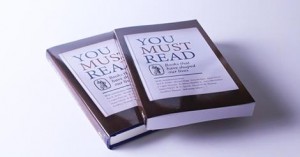 Review of You Must Read, Banner of Truth Trust, pbk, 288 pp., £11.50.
Review of You Must Read, Banner of Truth Trust, pbk, 288 pp., £11.50.
A collection like You Must Read, bringing together big names in the Reformed world to offer appreciative reviews of books published by the Banner of Truth, could look like a cynical marketing exercise. It is a testimony to the quality of the books on the Banner’s lists over the decades that this exercise has yielded a volume both useful and profitable.
You Must Read is at one level a guide to some of the finest Reformed literature available, commending to the reader a good mix of classic works from past centuries, and important publications of recent years. But it is also a personal record of the impact of ‘Banner books’ on individual lives. Here we see the Reformed resurgence of the 1960s and later in action, as individuals describe how different books and writers stimulated them to discover and be gripped by the riches of the Reformed faith.
The collection discusses major works of exegesis, like Haldane on Romans, and Ryle on the Gospels, such great works of church history as Cunningham’s Historical Theology and The Calvinistic Methodist Fathers of Wales, vital biographies, like Iain Murray on Edwards and Lloyd-Jones, and priceless theology: John Murray’s Redemption Accomplished and Applied, and Watson’s Body of Divinity. Yet still there are many great Banner titles just mentioned in passing, Dallimore’s superb life of Whitefield, for example, and Berkhof’s Systematic Theology, while others are forgotten altogether: Calhoun’s matchless Princeton Seminary, and Hendriksen’s New Testament Commentaries.
It is remarkable just what a debt the Reformed church owes the Banner of Truth for its publications old and new, and this collection is a good reminder. It is also dedicated as a well-deserved personal tribute to Iain and Jean Murray for their Christian service of many decades, leading directly to many of the publications here commended. The message of the collection is plain: You must read. These great Christian books will only benefit those willing to patiently open up their riches. But where to begin, or indeed to continue?
And thus the true value of such a collection: in recommending the works that have not yet been tackled. In the crowded Christian market, it is good to be directed to the books of proven value. The chapters succeed best where they offer personal testimony of the effect of the book, and add just enough of the content to whet the appetite. I hope John J Murray’s commendation leads many to discover the riches of Kenneth MacRae’s Diary; certainly Mark Dever’s intriguing account of his discover of Richard Sibbes should lead many to tackle this Puritan.
The consistent message of the books acclaimed here is the importance of sound and Scriptural doctrine to progress in the Christian faith. Such doctrine will take effect in objective encouragement for the tried believer, yet equally in the challenge to solemn and personal self-examination. Here are vital emphases for our day; we would all do well to drink deeply of the best of such Christian literature.


Leave a Reply